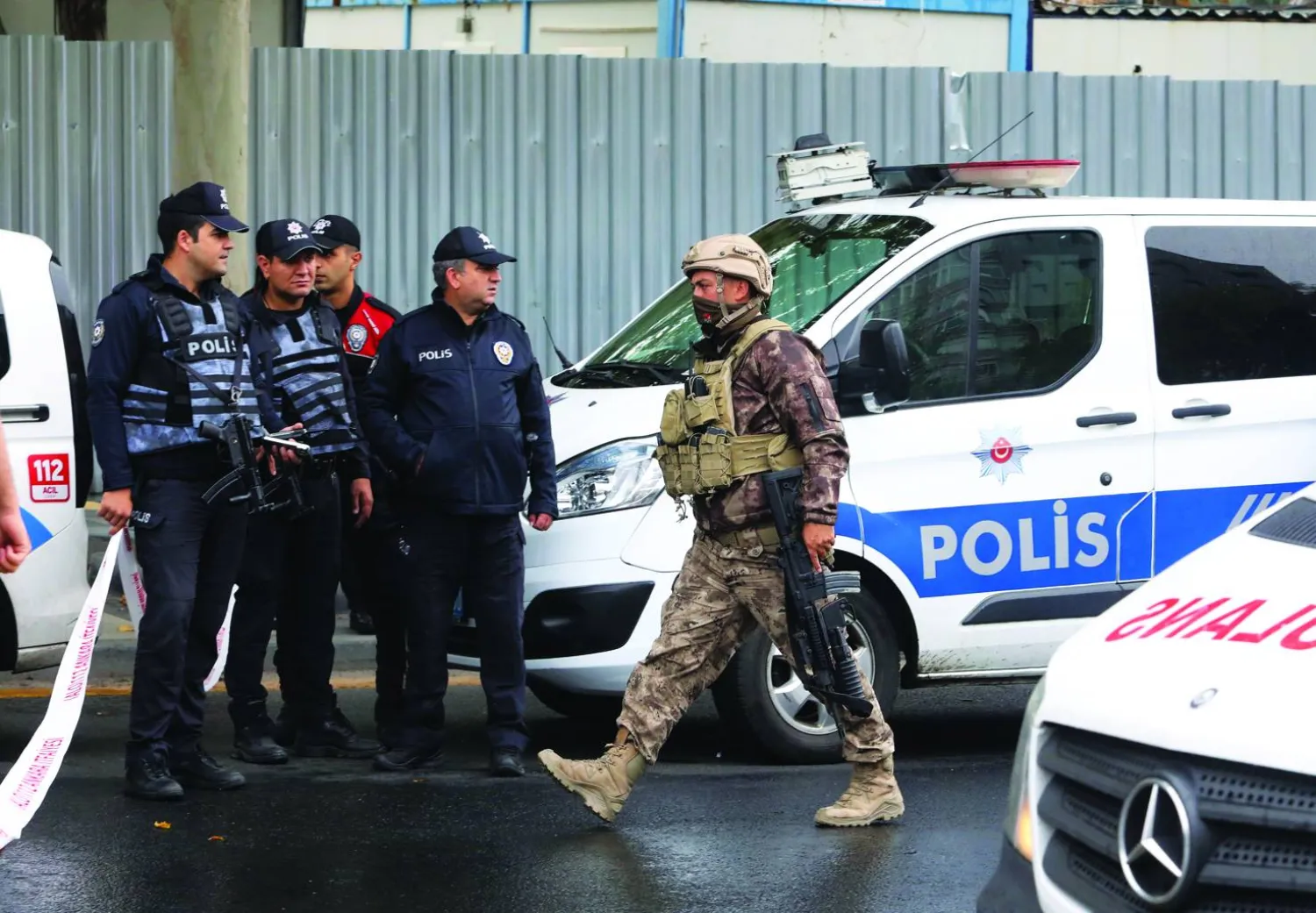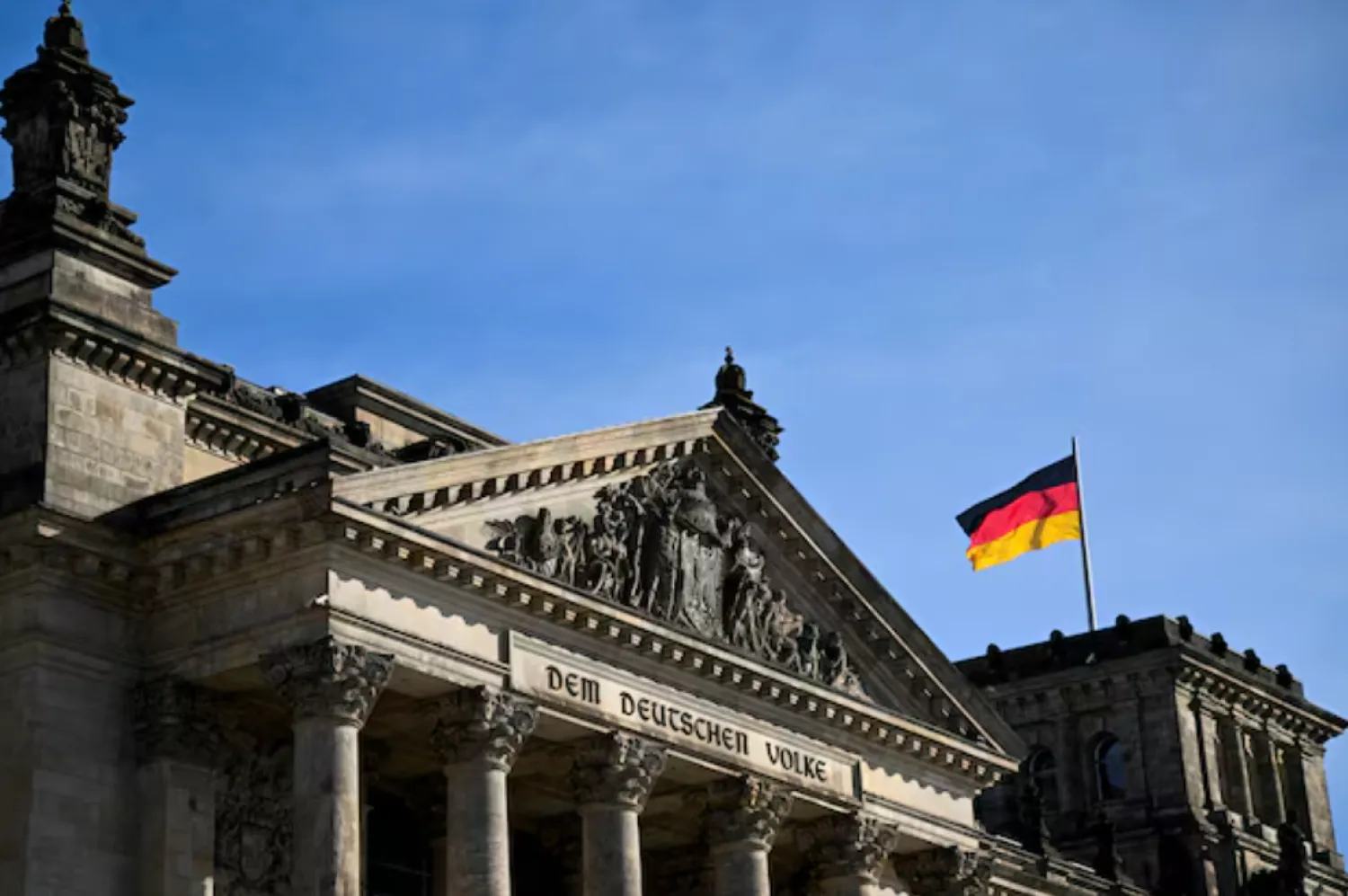Turkish warplanes carried out airstrikes on suspected Kurdish militant targets in northern Iraq on Sunday following a suicide attack on a government building in the Turkish capital, Türkiye’s defense ministry announced.
Some 20 targets of the Kurdistan Workers’ Party, or PKK, were “destroyed” in the latest aerial operation, including caves, shelters and depots, the ministry said, adding that a large number of PKK operatives were “neutralized” in the strikes.
Earlier on Sunday, a suicide bomber detonated an explosive device near an entrance of the Interior Ministry, wounding two police officers. A second assailant was killed in a shootout with police, The Associated Press said.
The PKK, which maintains bases in northern Iraq, claimed responsibility for the suicide bombing, according to a news agency close to the rebel group. Türkiye’s Interior Ministry also identified one of the assailants as a member of the outlawed group. It said efforts were still underway to identify the second attacker.
The attack happened hours before Türkiye’s Parliament reopened after its three-month summer recess with an address by President Recep Tayyip Erdogan.
The two assailants arrived at the scene inside a light commercial vehicle, which they seized from a veterinarian in the central province of Kayseri, according to the Interior Ministry. The pro-government daily Sabah reported that they shot the man in the head and threw his body into a ditch by the side of the road. They then drove the vehicle to Ankara, roughly 300 kilometers (200 miles) away.
“Our heroic police officers, through their intuition, resisted the terrorists as soon as they got out of the vehicle,” Interior Minister Ali Yerlikaya told reporters. “One of them blew himself up, while the other one was shot in the head before he had a chance to blow himself up.”
“Our fight against terrorism, their collaborators, the (drug) dealers, gangs and organized crime organizations will continue with determination,” he said.
Police found plastic explosives, hand grenades and a rocket launcher at the scene, a ministry statement said.
Erdogan gave his speech in Parliament as planned and called the attack “the last stand of terrorism.”
“The scoundrels who targeted the peace and security of the citizens could not achieve their goals and they never will," he said.
The president reiterated his government's aim to create a 30-kilometer (20 mile) safe zone along Türkiye’s border with Syria to secure its southern border from attacks.
Türkiye has conducted numerous cross-border offensives against the PKK in northern Iraq. It has also launched incursions into northern Syria since 2016 to drive away the ISIS group and a Kurdish militia group, known by the initials YPG, and controls swaths of territory in the area.
Türkiye views the YPG as an extension of the PKK, which is listed as a terror group by Türkiye, the United States and the European Union. The PKK has waged an insurgency against Türkiye since 1984. Tens of thousands of people have died in the conflict.
Last year, a bomb blast in a bustling pedestrian street in Istanbul left six people dead, including two children. More than 80 others were wounded. Türkiye blamed the attack on the PKK and the YPG.
Security camera footage on Sunday showed the vehicle stopping in front of the Interior Ministry, with a man exiting it and rushing toward the entrance of the building before blowing himself up. A second man is seen following him.
Earlier, television footage showed bomb squads working near a vehicle in the area, which is located near the Turkish Grand National Assembly and other government buildings. A rocket launcher could be seen lying near the vehicle.
Turkish authorities later imposed a temporary blackout on images from the scene.
Justice Minister Yilmaz Tunc said an investigation has been launched into the “terror attack.”
“These attacks will in no way hinder Türkiye’s fight against terrorism,” he wrote on X. “Our fight against terrorism will continue with more determination.”
Police cordoned off access to the city center and increased security measures, warning citizens that they would be conducting controlled explosions of suspicious packages.
The two police officers were being treated in a hospital and were not in serious condition, Yerlikaya said.
Egypt, which has normalized ties with Türkiye after a decade of tensions, condemned the attack. A terse statement from the Foreign Ministry offered Egypt’s solidarity with Türkiye.
The US Embassy in Ankara and other foreign missions also issued messages condemning the attack.
Erdogan in his speech did not provide any indication as to when Türkiye’s parliament may ratify Sweden’s membership in NATO.
Stockholm applied for NATO membership alongside Finland following Russia’s invasion of Ukraine last year. While Finland has since joined, Türkiye blocked Sweden’s membership in the military alliance, accusing it of not doing enough to tackle groups like PKK from operating on its soil. In a posting on X, Swedish Prime Minister Ulf Kristersson said Stockholm “strongly condemns today’s terrorist attack in Ankara."
"We reaffirm our commitment to long-term cooperation with Türkiye in combating terrorism and wish for quick and full recovery of the ones injured,” he wrote, using the Turkish government's preferred spelling for the country.
Türkiye Strikes Suspected PKK Targets in Northern Iraq after Suicide Attack in Ankara

Turkish security forces work at the site of a suicide attack near the Interior Ministry in Ankara, Türkiye, 01 October 2023. EPA/NECATI SAVAS

Türkiye Strikes Suspected PKK Targets in Northern Iraq after Suicide Attack in Ankara

Turkish security forces work at the site of a suicide attack near the Interior Ministry in Ankara, Türkiye, 01 October 2023. EPA/NECATI SAVAS
لم تشترك بعد
انشئ حساباً خاصاً بك لتحصل على أخبار مخصصة لك ولتتمتع بخاصية حفظ المقالات وتتلقى نشراتنا البريدية المتنوعة







